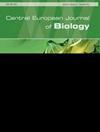Acibenzolar-S-Methyl Inhibits MEK1/2 Signaling in SH-SY5Y Neuroblastoma Cells
引用次数: 1
Abstract
Objective: Targeted cancer therapy using targeted cell proliferation inhibitors has become increasingly more critical. Studies conducted over the last decade have shown that non-steroidal drugs containing salicylic acid (SA) such as aspirin reduce mortality in many cancers. From this perspective, there are data suggesting SA as a potential inhibitor of the mitogenic MEK1/2 (mitogen-activated-protein-kinase, MAPK), extracellular-signal regulated-protein-kinase (ERK)) signaling, which could be highly effective in the prevention of proliferation in cancer. To date, no study has been conducted on the effect of SA on MEK1/2 signaling in neuroblastoma cells. Thus, the aim of this study is to reveal whether SA has an effect on MEK1/2 signaling in neuroblastoma cancer which is a frequent pediatric cancer with poor prognosis. Materials and Methods: The purpose of this study was to investigate whether a SA analog acibenzolar-S-methyl had an effect on the MEK1/2 signaling pathway and on cell viability in SH-SY5Y neuroblastoma cells by MTS (3-(4,5-dimethylthiazol2-yl)-5-(3-carboxymethoxyphenyl)-2-(4-sulfophenyl)-2H-tetrazolium) cell viability analysis and MEK1/2 and active caspase-3 detection by western blotting technique. Results: MTS cell viability test indicated that 10 mM acibenzolar-S-methyl reduces cell viability by 50%. Western blotting results of 10 mM acibenzolar-S-methyl–treated cells showed that MEK1/2 signaling was significantly inhibited in SH-SY5H cells. Besides, an increase in active-caspase-3 levels provided insight into acibenzolar-S-methyl’s apoptotic effect which needs further morphological apoptotic data. Conclusion: Our research is the first to show that SA analog acibenzolar-S-methyl negatively affects MEK1/2 signaling causing the death of SH-SY5Y neuroblastoma cells. Our results can give insight not only into understanding the mechanisms of carcinogenesis but also into developing effective treatment methods.酸性苯并唑- s -甲基抑制SH-SY5Y神经母细胞瘤细胞MEK1/2信号通路
目的:利用靶向细胞增殖抑制剂进行肿瘤靶向治疗已变得越来越重要。过去十年进行的研究表明,含有水杨酸(SA)的非甾体类药物,如阿司匹林,可降低许多癌症的死亡率。从这个角度来看,有数据表明SA是有丝分裂原活化蛋白激酶(MEK1/2, MAPK)、细胞外信号调节蛋白激酶(ERK)信号传导的潜在抑制剂,可能在预防癌症增殖方面非常有效。到目前为止,还没有关于SA对神经母细胞瘤细胞MEK1/2信号通路影响的研究。因此,本研究的目的是揭示SA是否对神经母细胞瘤中MEK1/2信号的影响,神经母细胞瘤是一种常见的预后较差的儿童癌症。材料与方法:本研究通过MTS(3-(4,5-二甲基噻唑-2-基)-5-(3-羧基甲氧基苯基)-2-(4-磺苯基)- 2h -四氮唑)细胞活力分析和western blotting检测MEK1/2和活性caspase-3,探讨SA类似物酸苯甲-s -甲基对SH-SY5Y神经母细胞瘤细胞MEK1/2信号通路和细胞活力的影响。结果:MTS细胞活力试验表明,10 mM的酸性苯并拉- s -甲基使细胞活力降低50%。10 mM酸苯并拉- s -甲基处理细胞的Western blotting结果显示,SH-SY5H细胞中MEK1/2信号明显被抑制。此外,活性caspase-3水平的升高为酸性苯并- s -甲基的凋亡作用提供了线索,这需要进一步的形态学凋亡数据。结论:我们的研究首次证实了SA类似物酸苯并- s -甲基对MEK1/2信号通路产生负性影响,导致SH-SY5Y神经母细胞瘤细胞死亡。我们的研究结果不仅有助于了解癌症发生的机制,而且有助于开发有效的治疗方法。
本文章由计算机程序翻译,如有差异,请以英文原文为准。
求助全文
约1分钟内获得全文
求助全文

 求助内容:
求助内容: 应助结果提醒方式:
应助结果提醒方式:


